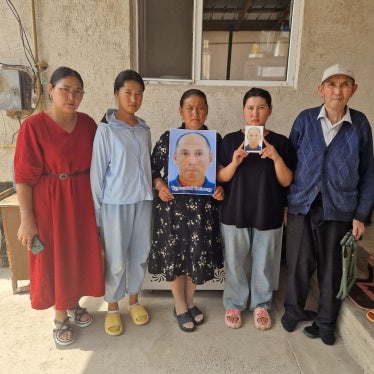The media and politics in Burma are both progressing, but the judicial system has for a long time been a cruel joke.
Change is in the air in Burma. There is a new openness in the long-suppressed media. The opposition National League for Democracy is formally joining the political fray with byelections scheduled for 1 April. Hundreds of political prisoners have been released, and Burma's parliament is enacting laws that proponents claim will promote basic rights, such as joining trade unions and holding demonstrations, that have long been denied the Burmese people.
Yet the military still lurks behind the scenes and there are no institutions in place that could prevent the changes from being reversed.
One test of the government's commitment to reform is whether it will allow the development of a professional and independent judiciary. Government tolerance of dissent and legal due process are only as good as the judicial system entrusted to uphold the rule of law. When the world views of Burma's government and military clash with those of the political opposition and ethnic minority groups – as they inevitably shall – will Burma's judiciary be able to take a principled stand, or will it be the tool of those in power?
The courts in Burma have long been nothing more than a cruel joke. For decades they have handed down outrageous sentences against peaceful demonstrators, political activists, journalists and socially minded monks without regard for either the law or the facts.
The United Nations expert on human rights in Burma noted in a report this month that Burma "lacks an independent, impartial and effective judiciary", and in his discussions with the chief justice of the supreme court, "noted limited acknowledgement of challenges and gaps in capacity or functioning, and a lack of willingness" to address options for reform.
No case better highlights this than the government's prosecution of well-known comedian and social activist Zargana for publicly criticising the government's languid response to Cyclone Nargis in 2008. Zargana was sentenced to a mind-numbing 59 years in prison.
A higher court, doubtless instructed to dampen the international outcry, reduced his sentence to a mere 35 years. Zargana was released from prison in October last year, but it was not because the supreme court had overturned the dubious verdicts. Instead, he was a beneficiary of a mass amnesty of 230 political prisoners. Many activists were released under section 401 of the Criminal Procedure Code: a form of parole, not exoneration, that could send them back to prison.
Almost 50 years of military rule, imposed after the 1962 overthrow of the democratically elected government, have proved devastating to all state institutions, including the courts. Courts were disempowered, and judges replaced on the basis of loyalty to the junta. Many of the thousands imprisoned after the military crushed the massive pro-democracy protests in 1988 were summarily tried by military tribunals, often inside Rangoon's notorious Insein prison, sidestepping the regular courts.
The problem in Burma today is not that judges are struggling to be independent against a heavy-handed regime, but rather that judges are part and parcel of decades of a military governing system. Judges routinely impose unjustified sentences in political cases, allowing them to keep their jobs and access to the benefits of a corrupt system.
Nor will the country's new constitution bring about the necessary changes. Despite language asserting judicial independence, the president retains a dominant role over the parliament in appointing and removing judges. And there are no specific constitutional mechanisms to prevent political interference.
It's not clear how an independent and rights-respecting judiciary can best be developed in Burma. Without a clear and unwavering commitment from the government and other power-holders in Burma not to interfere in judicial proceedings, ploughing foreign aid or technical assistance into the existing system will not bring change. The government and the military will need to stop telling judges what to do and demonstrate they will not take reprisals against those who rule against them, such as by ordering political prisoners released or holding corrupt officials accountable.
Even in the best-case scenario, reform will take time. Real inroads will need to be made against corruption in the judicial system. Legal education needs a massive overhaul. Standards of professionalism will have to be created. A culture of judicial independence will have to be established. And even without constitutional amendments to ensure the impartial selection of judges, the government needs to accept more input from civil society, opposition parties and ethnic minority groups on candidates for judicial appointment.
Legal reform means establishing confidence in the courts. Political prisoners amnestied on Tuesday should feel secure that they won't be rearrested on Wednesday. Demonstrators should know that abiding by the new law on peaceful assembly will mean that even if they are hauled in by the police, a judge will throw out the case. And ethnic minorities who suffer abuses by soldiers in conflict areas need be able to obtain justice and redress in the courts. The hopeful changes now occurring in Burma will only become genuine reforms when there is institutional protection provided by an independent judiciary.







